READY TO GET STARTED?
REQUEST A FREE ESTIMATE
Fill out the form below or call (888) 466-7849 for a free, no-obligation estimate.
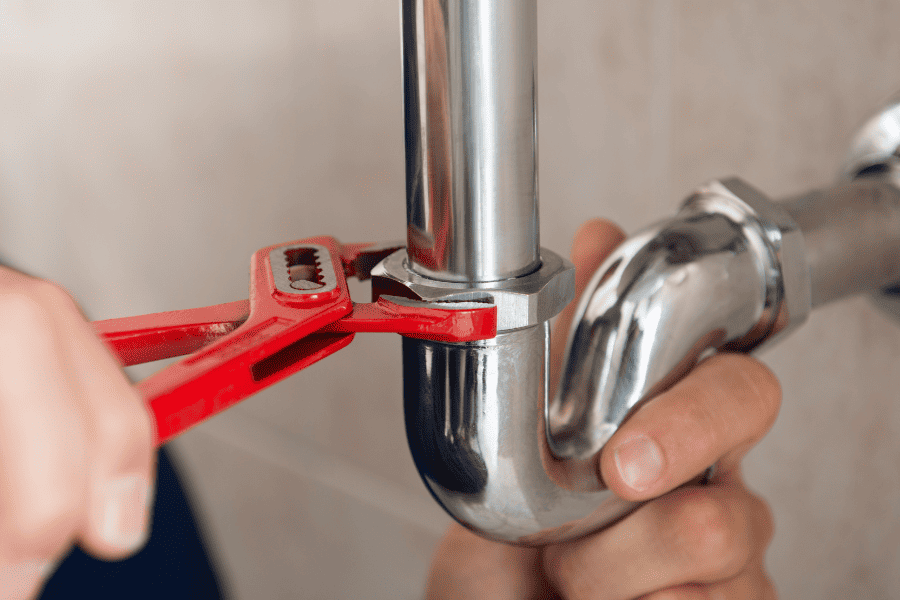
It’s inevitable to come across certain pests, especially during the warmer months of the year. Though, with Florida’s tropical weather year-round, it can seem like dealing with pests is nonstop. Roaches, mice, mosquitoes, and ants are just a few pests that can take over a household, become an annoyance, spreading disease, and causing damage to your home. One of the best ways to avoid a pest infestation is preventing them in the first place by placing do-it-yourself pest proofing measures throughout your home. Check out our list of DIY pest control tips you can utilize:
Pests are attracted to three things: food, shelter, and water. The best way to keep pests from entering your home is to get rid of what they’re attracted to. Try to keep your home as clean as possible, vacuuming and sweeping on a regular basis. Likewise, repair any leaky pipes and faucets both inside and outside of your home. Avoid leaving your pet’s food and water bowls overnight, taking them in and storing their leftover food in plastic containers with lids. Declutter your home, removing any old magazines, newspapers, and cardboard boxes you don’t need.
Mice, ants, and roaches can enter through the smallest hole or gap they find. It’s important to take the time to inspect the outside of your home for any potential entry points, sealing them up with either caulk or steel wool, depending on how large it is. Don’t forget to check foundations, food frames, windows, utility pipes, cables and wires, and the roof for any potential opening pests could enter in from. Repair any broken windows or screens and fil openings in pipes and vents.
To get to your home, pests must enter your yard first, so it’s important to keep it less attractive to them as it is your home. Regularly mow your grass, keeping it short and eliminating any weeds. Remove piles of leaves, debris, and fallen branches from your yard. Look to eliminate any clutter or items you don’t need, such as old automobiles, trashcans, tires, and dumpsters. If you store wood, keep it elevated from the ground and at least 20 feet from your home.
Pests need water to survive, and the smallest amount of standing water will attract pests like termites and mosquitoes. Keeping your home as dry as possible is key to avoiding their infestation. Check around your home for any water leaks and look for loose fixtures or dripping faucets too. If you have a crawlspace, consider utilizing a dehumidifier to decrease excess moisture. Make sure you clear any debris and leaves from your gutters, especially after a hurricane or thunderstorm.
Sometimes, a pest infestation needs more attention than DIY pest control methods can provide. If you’re still seeing an influx of pests or would like to get ahead of pest prevention, consider reaching out to a local pest control company for some help. These professionals will identify the pest at hand, provide proper treatment, and recommend the best prevention techniques you can use at home to avoid a future pest infestation.
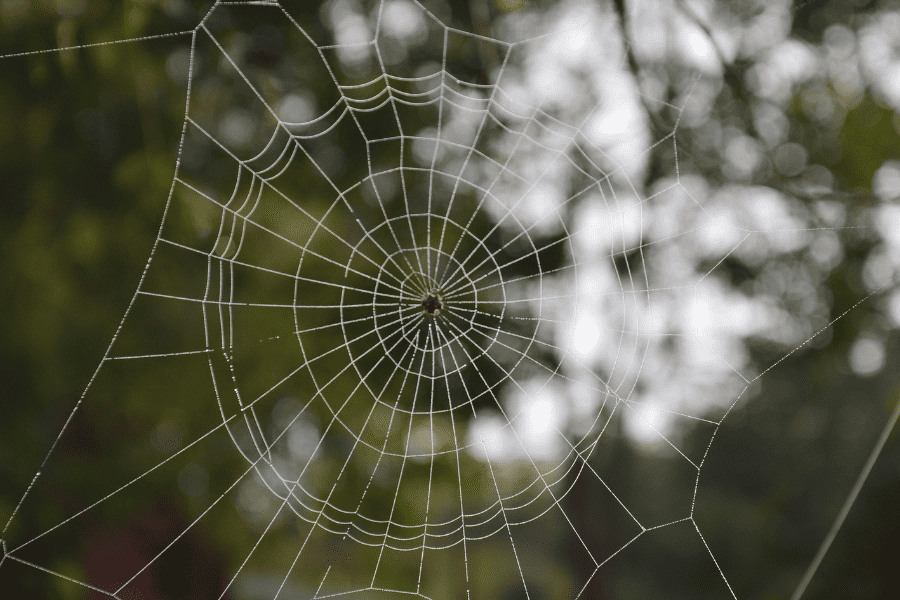
Did you know that most spiders are venomous? It’s true! Luckily (if you can look at it that way), only a few types of spiders have venom powerful enough to harm humans. These include the widows and the recluses. Check out our list of venomous spiders in Florida and their characteristics to easily identify them.
Spiders will bite as a defensive mechanism and these bites usually arise when we place our hands or feet in areas where we don’t see these spiders. A bite from any of these venomous spiders can lead to swelling, severe pain, nausea, sweating, and intense muscle cramps. If you think you’ve been bitten by a venomous spider, seek medical attention immediately.
Spiders will hide out where they know high populations of pests reside. This means they can find a safe space inside your home. Here are some easy tips to follow to ensure they don’t take up residence in your home:
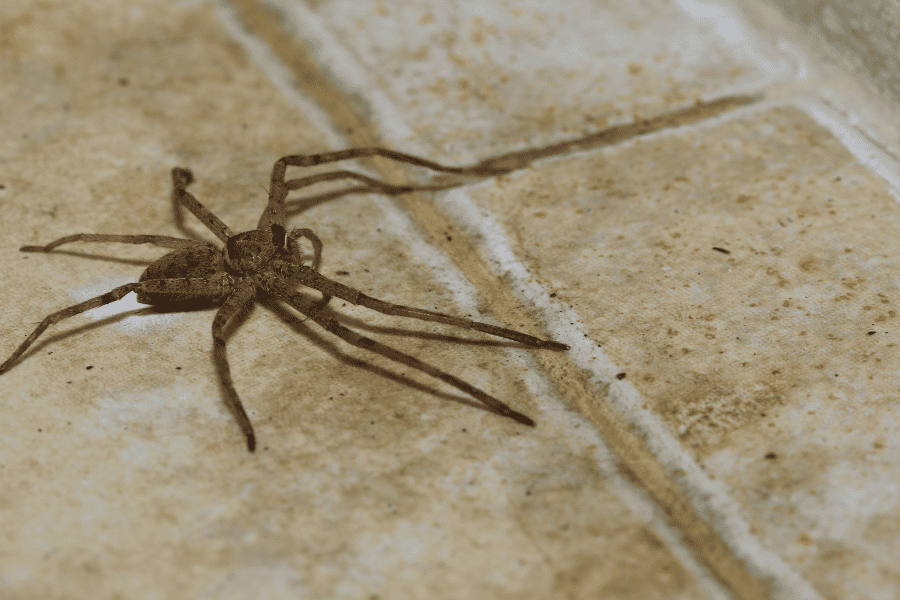
Florida homeowners know that the climate rarely changes in their state, typically staying well above 50 degrees year-round. With the warmer climate, pests tend to stick around year-long, sometimes invading our homes in the process! Spiders are a likely pest that homeowners might come across throughout the year. Check out the reason Florida spiders might be invading your home and how you can prevent them.
Spiders thrive in Florida’s humid climate, which provides plenty of opportunities for several spider species to invade our homes! Spiders, such as wolf spiders, brown widows, and black widows are all common to our area. These pests are small and will sneak into the home through the smallest hole, gap, or through packages without being noticed. Spiders prefer to be secluded and hidden away from human activity, and they’ll often find dark areas in the home to habitat such as behind furniture, in basements, under dressers, and in attics.
Taking precautions is the best way to ensure spiders don’t enter your home. Consider the following prevention tips to keep spiders away:
If you notice more spiders than you’re comfortable with on your property, reach out to your local pest control company for a free inspection!
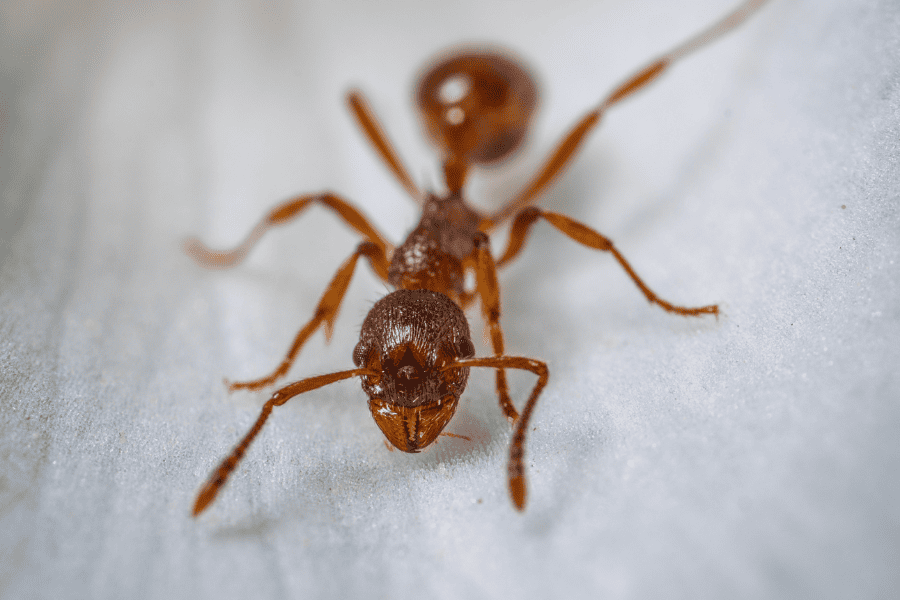
One thing about Florida: pests love to live here! Warm, humid climates make our state the perfect oasis for both humans and pests. While it’s inevitable to come across them, there are ways to prevent them from invading your home. Read more on the types of Florida pests to be aware of and how you can prevent them from ruining your fun in the sun!
Small, pesky, and will sneak into your home unnoticed, ants can become a major problem if they find their way inside. There are several types of ants popular to our area, including fire ants, carpenter ants, Argentine ants, and more. These ants may have different characteristics, but they all are looking for a water and food source to survive. You will often find these pests in your bathroom, kitchen, basement, or even utility room. While ants can be harmless, they are known to bite which can lead to allergic reactions such as itching or swelling.
Seeing a cockroach in your home is always alarming! Roaches, including the American roach, German roach, and brown-banded roach prefer to live in places such as sewers, trashcans, basements, and bathrooms, to seek food, shelter, and water for survival. Once these pests invade, it can be hard to remove them as they can multiple quickly. Roaches also carry bacteria on their bodies and feet and will spread unwanted germs when they walk across surfaces. They’re also known to trigger allergic reactions and asthma attacks.
Ticks can not only harm humans but can also be harmful to our pets. These pests are extremely small and will latch and feed onto the blood of animals and humans. They can often be found in wooded or grassy areas, transmitting diseases such as Lyme disease and Rocky Mountain fever. If you’ve been outside for a long period of time, you can often find them on your face, legs, armpits, belly, and in-between toes!
Dealing with a termite infestation at your home can be devasting, as they can cost thousands of dollars in repairs. There are two common termites in Florida: drywood termites and subterranean termites. Drywood termites prefer to live and nest in wooden structures or dry wood and do not need a water source. Signs of drywood termites include spotting their frass, which appear like sawdust, and located in piles near the infestation area. Subterranean termites need a water source and build their nest underground to obtain it. Signs that indicate a subterranean termite infestation include seeing their mud tubes along a home’s foundation or floor.
If you notice an influx of the pests listed above, consider reaching out to your local pest control company for help! These professionals will also provide you with free inspection and a treatment and prevention plan customized for your home.
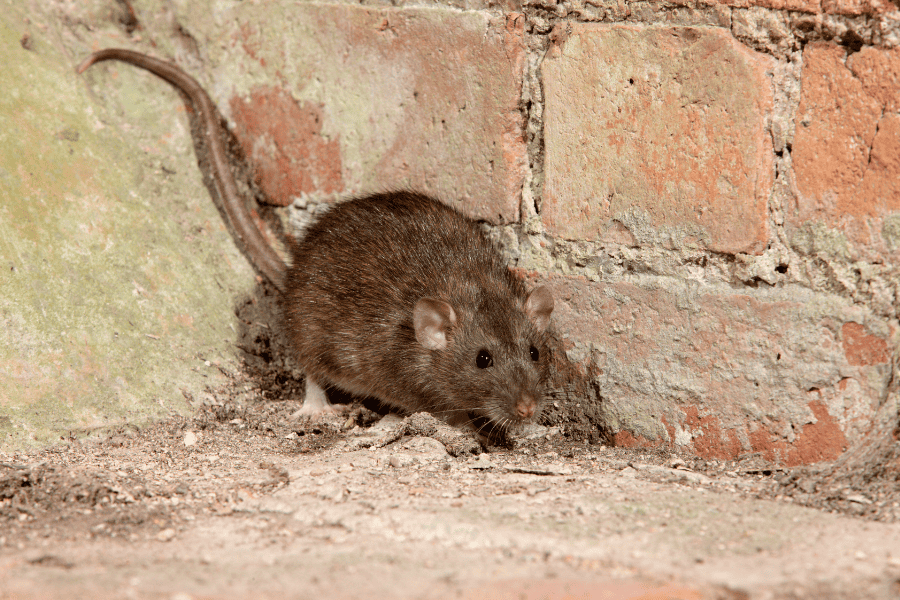
Rodents, like mice and rats, are searching for a place to call home and often look towards our Florida home for it. Once inside our homes, these critters can cause severe damage and be a health risk to our homes and families. Destroyed insulation, left behind droppings, and chewed electrical wires, are signs of rodent infestations. We list popular south Florida rodents to look at for and a few ways you can avoid these creatures from invading your home. Check them out below!
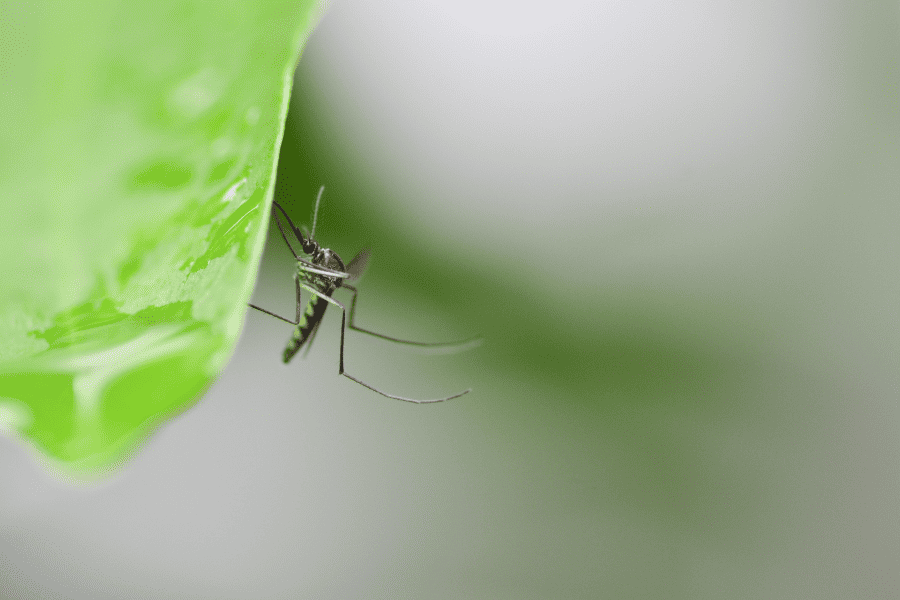
After a rainstorm, the last thing we want to deal with in our Florida homes is an influx of pests. Unfortunately, prolonged periods of heavy rains can cause certain pests to emerge, seek shelter, and cause damage to your home. To prevent pests after rain, it’s important to understand the prevention measures to put in place.
If reports of a potential rainstorm or hurricane emerge, look to inspect the exterior and interior of your home to help identify any issues that could lead to a pest infestation. Look for any cracks, crevices, holes, or gaps throughout your home, and seal them up with a silicone-based caulk as soon as possible. Likewise, ensure that your downspouts are diverted away from the foundation rather than towards it. Look to place both your garbage and any mulch away from your home too.
After a storm, your property could see plenty of standing water throughout. Unfortunately, pests like mosquitoes and roaches seek out excess moisture for survival. Look to remove all standing water from your property to avoid an influx of pests. Remove items holding water, such as buckets, old tires, tarps, etc. Likewise, clear out debris and leaves from your gutters.
With storms comes the chance that power outages may occur. If these outages last for a while, your stored food could go bad. Pests, like flies and rodents, seek out rotten food to eat, making it crucial to remove it as soon as possible. Deposit any food that’s gone bad in a sealed trash bag outside of the house. Likewise, ensure that any discarded food outside is also picked up and thrown away.
Rotting wood caused by water damage can attract destructive pests like termites, who will chew wood from the inside out. If these pests infest, they can cost millions of dollars in repairs. After a storm, inspect your home for any water damage that may have occurred. Remove any rotting debris, fix damaged pipes, and fill areas in your yard where water has pooled with dirt.
High winds and rain result in damage to our homes. Any openings that lead inside your home are an open invitation to larger pests such as rats, mice, raccoons, and squirrels to seek shelter. It’s important to inspect these areas after a storm has occurred. Damaged roofing, siding, and soffits can provide entry points inside the home. If you see any openings, look to seal them with caulk or steel wool.
If you notice more pests than you can handle after a storm, it’s best to reach out to your local pest control company. These professionals will inspect your property, identify the type of pest that’s infested, and recommend the best treatment and prevention plan.
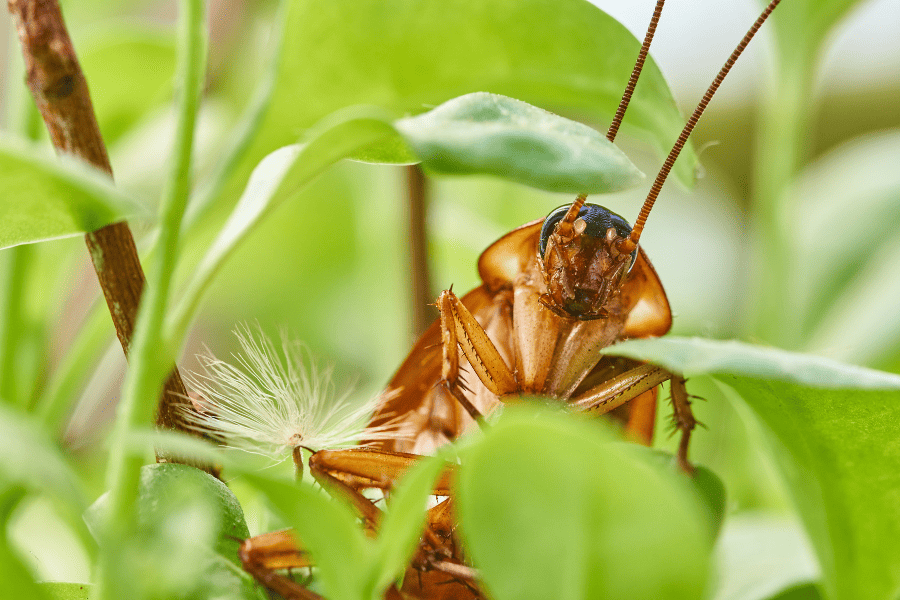
Highly adaptable pests, cockroaches will find their way inside homes and quickly begin to multiply! Once they’ve infested in numbers, it can be difficult to control them. Understanding the factors that attract these pests into homes is your first step to preventing them! Check out our guide to preventing roaches from infesting your Florida home.
There are several types of roaches homeowners should understand to properly prevent them. Here are some common roaches that you could come across at your home:
Roaches prefer to eat sugar, carbs, and protein but will eat about anything they can find. Regularly clean up any leftover food, spills, or crumbs on tables, countertops, and appliances, especially after cooking or eating a meal. After a grocery trip or storing leftovers, look to place your food in airtight containers. Likewise, rinse out cans, bottles, or jugs, before throwing them out in your garbage can. Finally, empty your garbage on a regular basis, placing it outside in trash cans with lids.
Did you know that roaches are able to survive without water for 2 weeks? It’s true! Despite this, they still seek out water as much as they can and will enter homes if they’ve found it. It’s important to remove any standing water inside or outside of your home. Look to remove water near drains and sinks, particularly overnight. Your crawlspace and basement can create excess moisture; consider utilizing a dehumidifier or installing a moisture barrier or crawlspace enclosure to help.
Roaches love clutter, making it essential to remove any unnecessary items from your home, garage, and attic. Get rid of any old cardboard boxes, newspapers, and magazines. Likewise, vacuum and dust periodically and consider painting or varnishing your wood shelves to seal cracks and crevices where roaches tend to hide. Check your interior walls, skirting, electrical outlets, baseboards, sinks, and cabinets for any gaps or openings, sealing them as soon as possible. Inspect that your windows and doors are sealed and consider utilizing weatherstripping.
Prevention is a great way to keep cockroaches away, but if the issue becomes more than you can handle, it’s always best to call your local pest control company for help. These professionals will be able to identify the infested roach and provide you with a treatment and prevention plan.
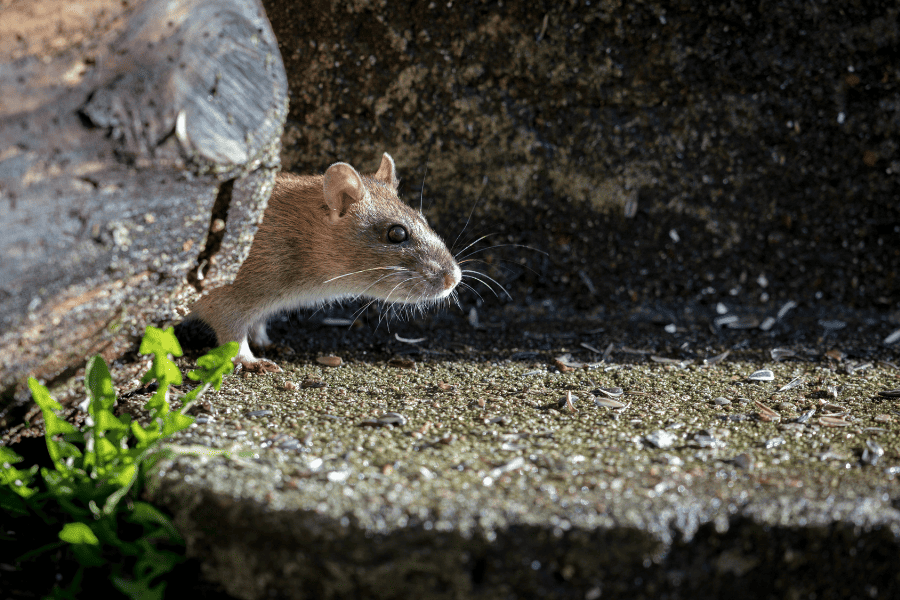
Common to the Florida area, rodents can cause significant damage to our homes by chewing on wires, destroying insulation, and contaminating our living areas. There are several types of rodents in Florida that homeowners should be aware of to properly prevent them from invading. Check out our list of common rodents and how to prevent them from invading your home.
If you suspect that any of these common rodents have invaded your home, it’s best to reach out to your local pest control company for help. These expert professionals will be able to remove, exclude, and prevent them in the future!
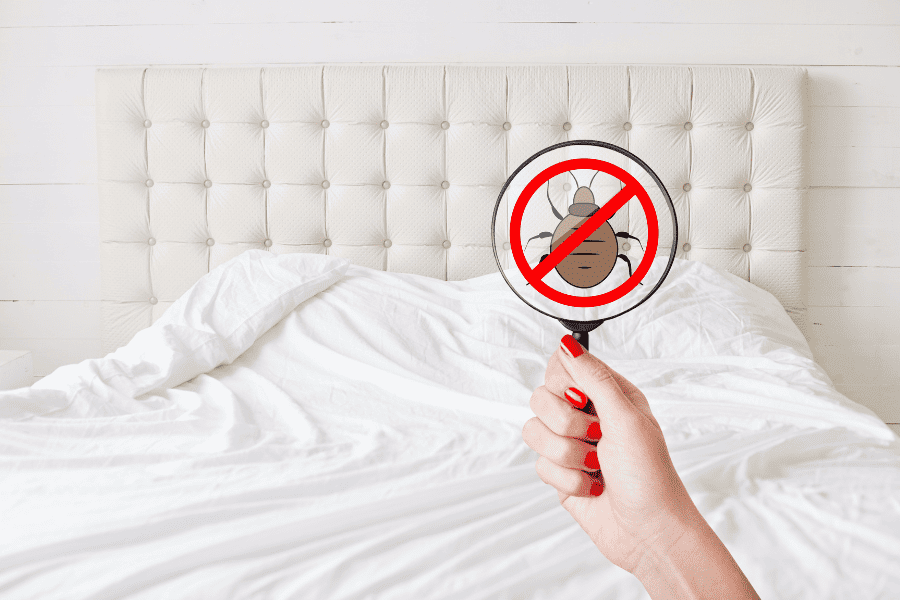
Bed bugs are tiny, invasive pests that can easily hitchhike a ride with you after traveling and infest your home. Bed bugs are notoriously difficult to get rid of once they’ve made themselves at home in your furniture, bedding, and even carpet. To avoid the headache and expense of a bed bug infestation, consider following these tips to prevent them after you’ve come home from traveling.
Upon your hotel arrival, consider inspecting your hotel for bed bugs and checking the bed bug registry before booking a room. After your stay, when packing up and leaving your hotel room, do a thorough inspection of all your items, including luggage, bags, and clothing you’ve traveled with. Check for any signs of bed bugs, such as live bugs, shed skins, and brown stains on the mattress or bedding. Pay close attention to the seams of your luggage, as bed bugs often hide in small crevices. If you find any evidence of bugs, throw out your luggage and purchase a new one or seal it in a plastic bag until you can properly treat it.
As soon as you get home from your trip, inspect and unpack your clothes outside instead of inside your home. After unpacking, wash all your clothes and bedding in hot water as soon as possible. Bed bugs cannot survive in temperatures above 120°F, so washing and drying your items in the hottest setting is one of the best ways to kill any hitchhiking bugs. If you cannot wash an item in hot water, seal it in a plastic bag and place it in the freezer for a few days to kill any bugs that could be hiding inside.
After unpacking and washing your clothes, it’s still important to inspect your home after a trip. Inspect the areas where you often store your luggage and clothing, such as closets, dressers, and bedside tables. Check for any signs of bed bugs.
Even if you take these precautions, bed bugs can still find their way into your home. Be vigilant and watch for any signs of bed bugs, such as bites on your skin, live bugs, or small bloodstains on your bedding. If you suspect that you have a bed bug infestation, it’s best to call your local pest control company for help. These bed bug experts will be able to provide you with a thorough inspection and a treatment and prevention plan.